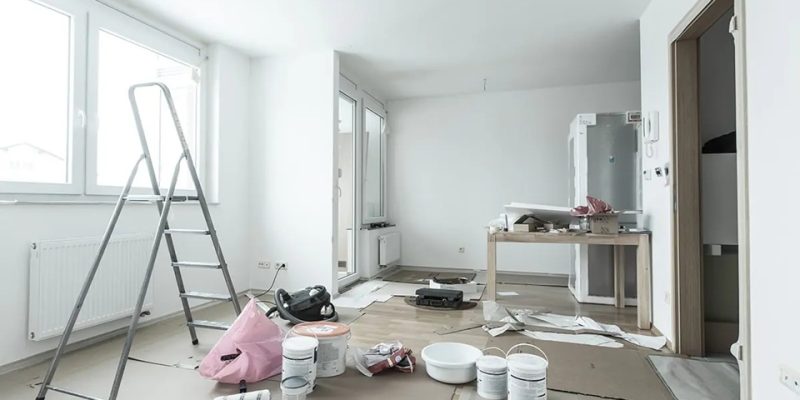Selecting the right housing design contractor represents perhaps the most critical decision homeowners will make when embarking upon property transformation, yet countless individuals approach this choice with insufficient preparation and understanding of what truly distinguishes exceptional professionals from mediocre ones. The consequences of this decision ripple through every aspect of the project, from initial conceptualisation through final execution, ultimately determining whether your investment enhances your property’s value or becomes a costly lesson in misplaced trust.
The Hidden Complexity Behind Housing Design
Housing design extends far beyond aesthetic considerations, encompassing structural engineering, building regulations compliance, environmental sustainability, and the intricate coordination of multiple trades and timelines. A competent contractor must navigate these complexities whilst maintaining clear communication with clients who may possess limited understanding of construction realities.
The modern housing design landscape in Singapore presents unique challenges that demand specialised expertise. Tropical climate considerations, space optimisation requirements, and stringent building codes create a framework within which only experienced professionals can operate effectively. The contractor’s role has evolved from simple construction oversight to comprehensive project management that integrates design vision with practical execution.
What Separates Exceptional Contractors from the Rest
Technical Competency and Regulatory Knowledge
Outstanding housing design contractors demonstrate mastery of local building codes, safety regulations, and permit requirements. They understand structural limitations, mechanical systems integration, and the complex interplay between different building trades. This knowledge prevents costly mistakes and ensures project compliance from inception to completion.
Communication and Project Management Skills
Exceptional contractors excel at translating technical concepts into accessible language, maintaining regular project updates, and managing client expectations throughout the construction process. They establish clear timelines, budget parameters, and communication protocols that prevent misunderstandings and scope creep.
Network of Reliable Subcontractors
Successful housing design projects depend upon coordinated efforts from multiple specialists—electricians, plumbers, painters, and various other trades. Top-tier contractors maintain relationships with skilled subcontractors who share their commitment to quality and reliability.
The Singapore Housing Design Landscape
Singapore’s unique property market creates specific considerations for housing design contractors. High-density living, strict renovation guidelines, and multicultural design preferences require professionals who understand both local regulations and diverse aesthetic sensibilities.
As veteran Singapore contractor and industry advocate James Lim observes, “Successful housing design in Singapore requires balancing international sophistication with practical tropical living requirements. The best contractors understand that every square foot must serve multiple purposes whilst maintaining aesthetic integrity.”
Housing design contractors operating in Singapore must navigate:
• HDB renovation guidelines and approval processes for public housing modifications
• Condominium management regulations that vary significantly between developments
• Neighbour relations in high-density environments where construction impacts multiple households
• Material sourcing challenges in a market dependent upon imports
• Climate-specific considerations affecting material selection and construction methods
Red Flags and Warning Signs
Identifying problematic contractors before signing agreements can prevent significant financial and emotional distress. Several warning signs consistently appear among contractors who deliver substandard results or abandon projects mid-completion.
Pressure Tactics and Unrealistic Timelines
Reputable housing design contractors provide detailed estimates and reasonable timelines based upon project complexity. Those who pressure clients into immediate decisions or promise unrealistically quick completion often lack the experience or resources necessary for quality execution.
Inadequate Documentation and Communication
Professional contractors provide comprehensive written estimates, clear contract terms, and detailed project timelines. Those who operate primarily through verbal agreements or provide vague documentation typically struggle with project management and accountability.
Insufficient Licensing and Insurance Coverage
Legitimate housing design contractors carry appropriate licensing, insurance coverage, and bonding to protect both themselves and their clients. Those who cannot provide proof of these protections often operate on the margins of professional standards.
The Investment Economics of Quality Contractors
While premium housing design contractors command higher initial fees, the long-term economics typically favour this investment. Quality work enhances property values, requires fewer repairs, and provides greater satisfaction over time. Conversely, substandard work often necessitates expensive corrections that exceed the initial savings from choosing lower-cost alternatives.
Singapore’s competitive property market particularly rewards well-executed renovations that demonstrate professional craftsmanship and thoughtful design integration. Properties showcasing quality contractor work command premium prices and sell more quickly than those bearing evidence of amateur or rushed construction.
Due Diligence and Contractor Selection
Effective contractor selection requires systematic evaluation of multiple candidates across several criteria. This process demands time investment upfront but prevents far more costly problems later.
Portfolio Review and Reference Verification
Examine recent project portfolios that demonstrate relevant experience with similar housing design challenges. Contact previous clients to discuss their experiences, paying particular attention to communication quality, timeline adherence, and post-completion support.
Financial Stability and Business Practices
Investigate the contractor’s business history, financial stability, and industry reputation. Established housing design contractors typically maintain consistent business locations, clear payment structures, and positive relationships with suppliers and subcontractors.
Managing the Contractor Relationship
Successful housing design projects require active client participation in contractor management. This involves regular communication, prompt decision-making, and clear boundary establishment regarding project scope and changes.
Establish regular progress meetings, maintain detailed project documentation, and address concerns immediately rather than allowing problems to compound. The most successful projects result from collaborative relationships where both parties understand their responsibilities and communicate openly about challenges and solutions.
Looking Beyond Project Completion
The best housing design contractors provide ongoing support beyond project completion, addressing warranty issues promptly and maintaining relationships that can prove valuable for future property improvements. This long-term perspective distinguishes professionals who view each project as part of their reputation from those focused solely on immediate profit.
Your choice of housing design contractor ultimately determines whether your renovation investment enhances your lifestyle and property value or becomes a source of ongoing frustration and expense.














Comments